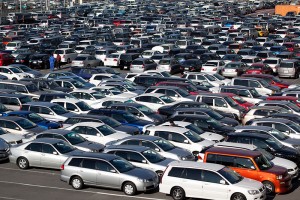There is an understandable, but misleading, narrative circulating around the Volkswagen emissions deception disaster – that the primary question is whether sustainable investors could and should have seen this coming and warned everyone.

A reader poll in the daily CFA Institute Financial Newsbrief has 81% of respondents saying that analysts can not “anticipate (the) risk of such losses through analysis of a company’s governance and internal controls”.
On the other side, Usman Hayat of the CFA Institute makes the case in the Enterprising Investor blog that the 12% who responded “yes” to the poll can legitimately point to numerous publicly-available indications of governance issues at Volkswagen dating to the 1990’s, with several prominent – and embarrassing – examples in recent years.
Hayat makes the important point that the commutative law does not apply here. There is indeed very clear evidence that failures of corporate governance uncovered in ESG analysis do indicate a higher subsequent risk of bad outcomes – for the corporation, its shareholders and society. But it doesn’t necessary follow that every such bad outcome should have been predicted. The increased risk is what should be noted and acted on. The question is how? Are we looking for a needle in a haystack? Not necessarily.
What has not been discussed in terms of ESG analysis in the Volkswagen case is the importance of industry risk factors. Cheating on emissions testing has a long and sad history – from Ford, Chrysler and VW in the early 1970’s, to GM’s Cadillac division in 1995, to a $1 billion EPA settlement with the long-haul trucking industry in 1998. History indicates that vehicle emissions should have been flagged much earlier as a material risk factor for vehicle manufacturers.
It is only with the emergence of SASB, the Sustainability Accounting Standards Board, that there has been a systematic effort to identify – and focus on – the material risk factors for specific industries. It will be that increased focus at identifying and following material, industry-specific risk factors that will enable investors to reduce the number of “surprises” like Volkswagen’s emissions cheating.
